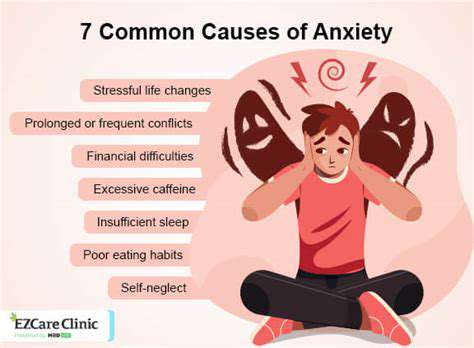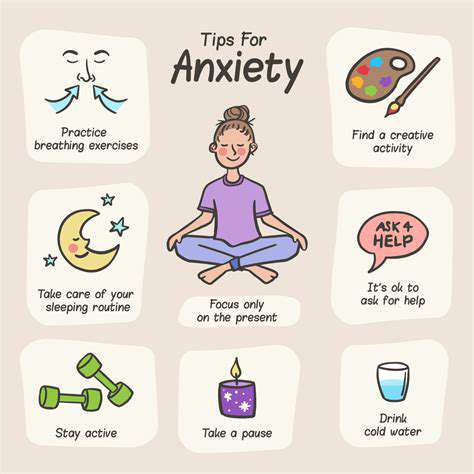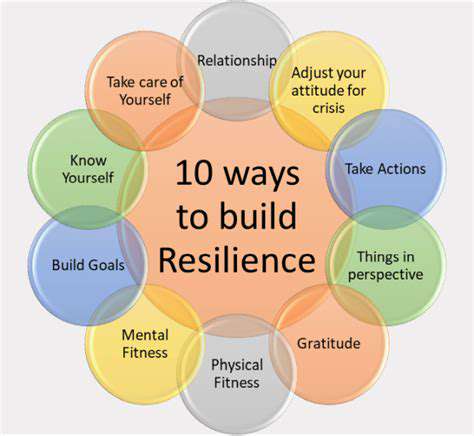Coping with Constant Feelings of Anxiety in Daily Life


Seeking Support and Professional Guidance
Understanding the Underlying Causes
Anxiety isn't simply a feeling; it's a complex response often rooted in various factors. Understanding these underlying causes is crucial for effective coping strategies. These causes can range from specific stressors like job pressures or relationship problems to more deeply ingrained anxieties potentially stemming from past experiences or personality traits. Identifying the specific triggers and contributing factors can help you develop targeted solutions and avoid merely treating the symptoms.
Moreover, recognizing the interplay between physical and mental health is vital. Physical factors like sleep deprivation, poor diet, or underlying medical conditions can significantly exacerbate anxiety symptoms. Understanding this connection allows for a more holistic approach to care, integrating physical well-being into your overall strategy for managing anxiety.
Identifying Your Triggers and Patterns
A critical step in managing anxiety is recognizing your personal triggers. What situations, thoughts, or emotions consistently precede feelings of anxiety? Journaling can be a valuable tool in identifying these patterns. By meticulously documenting your experiences, you can begin to discern recurring themes and develop strategies to anticipate and mitigate these triggers.
Paying attention to your body's physical responses to anxiety is equally important. Do certain activities, environments, or people consistently evoke physical sensations like rapid heartbeat, shortness of breath, or muscle tension? Recognizing these physiological responses can provide valuable insights into your anxiety triggers and help you connect them to specific situations or thoughts.
Developing Healthy Coping Mechanisms
Coping mechanisms are essential tools for managing anxiety. These techniques can range from simple relaxation exercises like deep breathing to more structured approaches such as mindfulness practices. Developing a repertoire of healthy coping strategies will equip you with the tools you need to navigate challenging situations and reduce the intensity of your anxiety responses.
Experiment with different techniques to find what works best for you. Consider incorporating activities that promote relaxation, such as spending time in nature, engaging in hobbies, or listening to calming music. Finding activities that bring you joy and peace can be invaluable in managing your anxiety.
Seeking Professional Support
While self-help strategies are valuable, seeking professional support is often crucial for managing chronic or severe anxiety. A therapist can provide personalized guidance, help you explore underlying issues, and teach you effective coping mechanisms tailored to your specific needs. Don't hesitate to reach out for help; professional support can empower you to develop long-term strategies for managing your anxiety.
A therapist can also help you identify and challenge negative thought patterns that contribute to anxiety. This cognitive restructuring can significantly reduce the intensity of anxious feelings and improve overall well-being. Remember, seeking professional help is a sign of strength, not weakness.
Building a Support System
Isolation can exacerbate anxiety. Building a strong support system of friends, family, or support groups can provide a crucial buffer against overwhelming feelings. Sharing your experiences with trusted individuals can help you feel less alone and more understood. Having people in your life who offer encouragement and empathy can significantly impact your ability to manage anxiety.
Lifestyle Adjustments for Enhanced Well-being
Incorporating healthy lifestyle choices can play a significant role in reducing anxiety. Prioritizing sufficient sleep, maintaining a balanced diet, and engaging in regular physical activity can all contribute to a more stable emotional state. These lifestyle adjustments, combined with other coping strategies, can create a powerful foundation for managing anxiety effectively.
Regular exercise, for example, releases endorphins that have mood-boosting effects. Furthermore, a balanced diet provides the necessary nutrients for optimal brain function, contributing to a more stable emotional response to stressors. Prioritizing these elements can significantly enhance your overall well-being and resilience in the face of anxiety.
